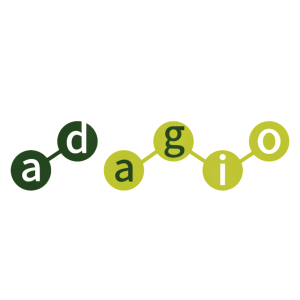Invivyd Announces General Alignment with U.S. FDA on a Repeatable, Expedient Emergency Use Authorization Pathway for the Prevention and Treatment of Symptomatic COVID-19, Based on Compact Clinical Programs to Establish Safety and Immunobridging for Serial Monoclonal Antibodies
Rhea-AI Summary
Invivyd has aligned with the U.S. FDA on a streamlined, repeatable pathway for emergency use authorization (EUA) for new monoclonal antibodies (mAbs) aimed at preventing and treating symptomatic COVID-19. This new approach allows for a master clinical trial protocol, simplifying the evaluation process and potentially reducing costs and time. Invivyd plans to quickly advance to a registrational trial for VYD2311, assessing intravenous and other delivery methods. The estimated cost for the safety and pharmacokinetics data is $25-40 million. This pathway is designed to keep pace with the rapid evolution of SARS-CoV-2, providing a reliable route for delivering high-value treatments.
Positive
- Alignment with FDA on a repeatable EUA pathway could expedite bringing new mAbs to market.
- Master clinical trial protocol may reduce the need for new protocols for each mAb, streamlining the process.
- Estimated cost for generating safety and PK data is $25-40 million, potentially lowering overall expenses.
- Plans to quickly move towards a registrational trial for VYD2311, enhancing speed to market.
- New pathway keeps pace with the rapid evolution of SARS-CoV-2, providing timely treatments.
Negative
- The direct clinical cost for generating safety and PK data, estimated at $25-40 million, is a significant investment.
- The effectiveness and reliability of the new mAbs in compact clinical programs remain uncertain until more data is available.
- Potential challenges in gaining similar alignment with global regulators outside the U.S.
News Market Reaction 1 Alert
On the day this news was published, IVVD gained 1.66%, reflecting a mild positive market reaction.
Data tracked by StockTitan Argus on the day of publication.
- Newly outlined pathway provides a practical, expedient, repeatable immunobridging approach to potential emergency use authorization of serial, novel monoclonal antibodies (mAbs) to prevent and treat COVID-19
- Pathway provides for the establishment of a master, registrational clinical trial protocol that is anticipated to streamline the evaluation of new mAbs in compact clinical programs
- Utilizing this framework, Invivyd plans to rapidly move towards a registrational clinical trial of VYD2311 that evaluates intravenous (IV) and potentially other routes of administration
WALTHAM, Mass., May 31, 2024 (GLOBE NEWSWIRE) -- Invivyd, Inc. (Nasdaq: IVVD), a biopharmaceutical company devoted to delivering protection from serious viral infectious diseases, today announced general alignment with the U.S. Food and Drug Administration (FDA) on an expedient, repeatable immunobridging pathway to future potential emergency use authorizations (EUAs) for serial, novel monoclonal antibodies (mAbs) for the prevention and treatment of symptomatic COVID-19. Coupled with Invivyd’s proprietary mAb technology platform and engineering capabilities, this pathway provides the company with the opportunity to rapidly, efficiently, and durably deliver high value medicines that prevent and treat symptomatic COVID-19 in vulnerable populations.
This pathway provides for the establishment of a master, registrational clinical trial protocol that could obviate the need to submit a new protocol for the evaluation of each new mAb, streamlining the process required to evaluate new mAbs in compact clinical programs envisioned to include hundreds of participants (e.g., 300-600) exposed to a new mAb, with the specific number of exposures to be determined in consultation with the FDA. This compact, repeatable immunobridging pathway is similar to the approach Invivyd used to obtain an EUA for PEMGARDA™ for pre-exposure prophylaxis (PrEP) but would leverage a more efficient route to obtaining the safety and pharmacokinetics (PK) data that could support future potential EUA requests. The direct clinical cost of generating the safety and PK data contemplated in this pathway is estimated at
“We are pleased to gain general alignment with the FDA on a repeatable, rapid pathway toward addressing the ongoing, critical unmet need for novel options for the prevention and treatment of symptomatic COVID-19. As the speed of SARS-CoV-2 viral evolution has become the defining feature that limits antibody development and commercialization, our work over the last two years has focused on driving novel development pathways to allow our technology to match or exceed the pace of viral evolution,” commented Marc Elia, Chairman of the Invivyd Board of Directors. “We look forward to discussing this approach with global regulators outside the U.S., as it represents a potentially transformational pathway to bring high value medicines to patients in need in a repeatable fashion, apace with rapid viral evolution.”
“Our alignment on a defined pathway to potential future EUAs represents an important step forward for unlocking this unique class of medicines that can potentially both treat and prevent COVID-19,” said Mark Wingertzahn, SVP of Clinical Development and Medical Affairs. “The central challenge for advancing this COVID-19 mAb field has been the need for rapid discovery innovation combined with a rapid, clear, and reliable pathway for establishing the clinical evidence that can bring molecules to patients in need in an efficient manner. We are looking forward to innovating within this defined pathway as we seek to improve the patient and system-friendliness of our molecules by exploring, for example, intramuscular and other presentations that may have access advantages for both PrEP and treatment of COVID-19.”
About PEMGARDA
PEMGARDA™ (pemivibart) is a half-life extended investigational monoclonal antibody (mAb). PEMGARDA was engineered from adintrevimab, Invivyd’s investigational mAb that has a robust safety data package and provided evidence of clinical efficacy in a global Phase 2/3 clinical trial for the prevention and treatment of COVID-19. PEMGARDA has demonstrated in vitro neutralizing activity in pseudotyped virus-like particle and authentic virus neutralization assays against major SARS-CoV-2 variants, including JN.1. PEMGARDA targets the SARS-CoV-2 spike protein receptor binding domain (RBD), thereby inhibiting virus attachment to the human ACE2 receptor on host cells.
PEMGARDA (pemivibart) injection (4500 mg), for intravenous use is an investigational mAb that has not been approved, but has been authorized for emergency use by the U.S. FDA under an EUA for the pre-exposure prophylaxis (prevention) of COVID-19 in adults and adolescents (12 years of age and older weighing at least 40 kg) who have moderate-to-severe immune compromise due to certain medical conditions or receipt of certain immunosuppressive medications or treatments and are unlikely to mount an adequate immune response to COVID-19 vaccination. Recipients should not be currently infected with or have had a known recent exposure to an individual infected with SARS-CoV-2. PEMGARDA is not authorized for use for treatment of COVID-19 or post-exposure prophylaxis of COVID-19. Anaphylaxis has been observed with PEMGARDA and the PEMGARDA Fact Sheet for Healthcare Providers includes a boxed warning for anaphylaxis. The most common adverse events (all grades, incidence ≥
To support the EUA for PEMGARDA, an immunobridging approach was used to determine if PEMGARDA may be effective for pre-exposure prophylaxis of COVID-19. Immunobridging is based on the serum virus neutralizing titer-efficacy relationships identified with other neutralizing human mAbs against SARS-CoV-2. This includes adintrevimab, the parent mAb of pemivibart, and other mAbs that were previously authorized for EUA. There are limitations of the data supporting the benefits of PEMGARDA. Evidence of clinical efficacy for other neutralizing human mAbs against SARS-CoV-2 was based on different populations and SARS-CoV-2 variants that are no longer circulating. Additionally, the variability associated with cell-based EC50 value determinations, along with limitations related to pharmacokinetic data and efficacy estimates for the mAbs in prior clinical trials, impact the ability to precisely estimate protective titer ranges.
The emergency use of PEMGARDA is only authorized for the duration of the declaration that circumstances exist justifying the authorization of the emergency use of drugs and biological products during the COVID-19 pandemic under Section 564(b)(1) of the Federal Food, Drug, and Cosmetic Act, 21 U.S.C. § 360bbb-3(b)(1), unless the declaration is terminated or authorization revoked sooner.
About Invivyd
Invivyd, Inc. (Nasdaq: IVVD) is a biopharmaceutical company devoted to delivering protection from serious viral infectious diseases, beginning with SARS-CoV-2. The company’s proprietary INVYMAB™ platform approach combines state-of-the-art viral surveillance and predictive modeling with advanced antibody engineering. INVYMAB is designed to facilitate the rapid, serial generation of new monoclonal antibodies (mAbs) to keep pace with evolving viral threats. In March 2024, Invivyd received emergency use authorization (EUA) from the U.S. FDA for its first mAb in a planned series of innovative antibody candidates. Visit https://invivyd.com/ to learn more.
Cautionary Note Regarding Forward Looking Statements
This press release contains forward-looking statements within the meaning of the Private Securities Litigation Reform Act of 1995. Words such as “anticipates,” “believes,” “could,” “expects,” “intends,” “potential,” “projects,” and “future” or similar expressions (as well as other words or expressions referencing future events, conditions or circumstances) are intended to identify forward-looking statements. Forward-looking statements include statements concerning, among other things, the company’s general alignment with the U.S. FDA on a repeatable immunobridging pathway to future potential EUAs for serial, novel mAbs for the prevention and treatment of symptomatic COVID-19, including the company’s beliefs regarding the potential benefits, certain anticipated costs, and possible outcomes of utilizing such pathway; the potential of the company’s proprietary mAb technology platform and engineering capabilities; the company’s research and clinical development efforts, and the timing thereof, including the company’s expectations regarding establishment of a master, registrational clinical trial protocol that is anticipated to streamline the evaluation of new mAbs in compact clinical programs; the future of the COVID-19 landscape, the need for novel options for the prevention and treatment of symptomatic COVID-19, and progress towards unlocking a unique class of medicines that can potentially both treat and prevent COVID-19; potential discussions with global regulators; the company’s ability to bring high value medicines to patients in need and keep pace with viral evolution; the company’s EUA for PEMGARDA for PrEP of COVID-19 in certain immunocompromised people; the company’s devotion to delivering protection from serious viral infectious diseases, beginning with SARS-CoV-2; the design of the company’s INVYMAB platform approach to facilitate the rapid, serial generation of new mAbs to keep pace with evolving viral threats; the company’s expectation that PEMGARDA is the first mAb in a planned series of innovative antibody candidates; and other statements that are not historical fact. The company may not actually achieve the plans, intentions or expectations disclosed in the company’s forward-looking statements and you should not place undue reliance on the company’s forward-looking statements. These forward-looking statements involve risks and uncertainties that could cause the company’s actual results to differ materially from the results described in or implied by the forward-looking statements, including, without limitation: the company’s ability to effectively utilize an immunobridging pathway to potential EUA for serial, novel mAbs for the prevention and treatment of symptomatic COVID-19; whether the company is able to successfully submit any future EUA request to the FDA, and the timing, scope and outcome of any such EUA request; uncertainties related to the regulatory authorization or approval process, including the outcome of the company’s discussions with regulatory authorities concerning any clinical trial design; changes in the regulatory environment; the timing and progress of the company’s discovery, preclinical and clinical development activities; the company’s ability to streamline the evaluation of new mAbs in compact clinical programs through establishment of a master, registrational clinical trial protocol; unexpected safety or efficacy data observed during preclinical studies or clinical trials; the predictability of clinical success of the company’s product candidates based on neutralizing activity in preclinical studies; the risk that results of preclinical studies or clinical trials may not be predictive of future results, and interim data are subject to further analysis; the company’s reliance on third parties with respect to virus assay creation and product candidate testing and with respect to its clinical trials; how long the EUA granted by the FDA in March 2024 for PEMGARDA for PrEP of COVID-19 in certain immunocompromised people will remain in effect and whether such EUA is revoked or revised by the FDA; changes in expected or existing competition; the ability to maintain a continued acceptable safety, tolerability and efficacy profile of PEMGARDA or any other product candidate following regulatory authorization or approval; whether PEMGARDA or any other product candidate is able to demonstrate and sustain neutralizing activity against major SARS-CoV-2 variants, particularly in the face of viral evolution; variability of results in models used to predict activity against SARS-CoV-2 variants; the complexities of manufacturing mAb therapies; the company’s dependence on third parties to manufacture, label, package, store and distribute clinical and commercial supplies of its product candidates; the company’s ability to leverage its INVYMAB platform approach to facilitate the rapid, serial generation of new mAbs to keep pace with evolving viral threats; any litigation and other proceedings or government investigations relating to the company; the company’s ability to continue as a going concern; and whether the company has adequate funding to meet future operating expenses and capital expenditure requirements. Other factors that may cause the company’s actual results to differ materially from those expressed or implied in the forward-looking statements in this press release are described under the heading “Risk Factors” in the company’s Annual Report on Form 10-K for the year ended December 31, 2023 filed with the Securities and Exchange Commission (SEC), and in the company’s other filings with the SEC, and in its future reports to be filed with the SEC and available at www.sec.gov. Forward-looking statements contained in this press release are made as of this date, and Invivyd undertakes no duty to update such information whether as a result of new information, future events or otherwise, except as required under applicable law.
This press release contains hyperlinks to information that is not deemed to be incorporated by reference in this press release.
Contacts:
Media Relations
(781) 208-1747
media@invivyd.com
Investor Relations
(781) 208-1747
investors@invivyd.com









